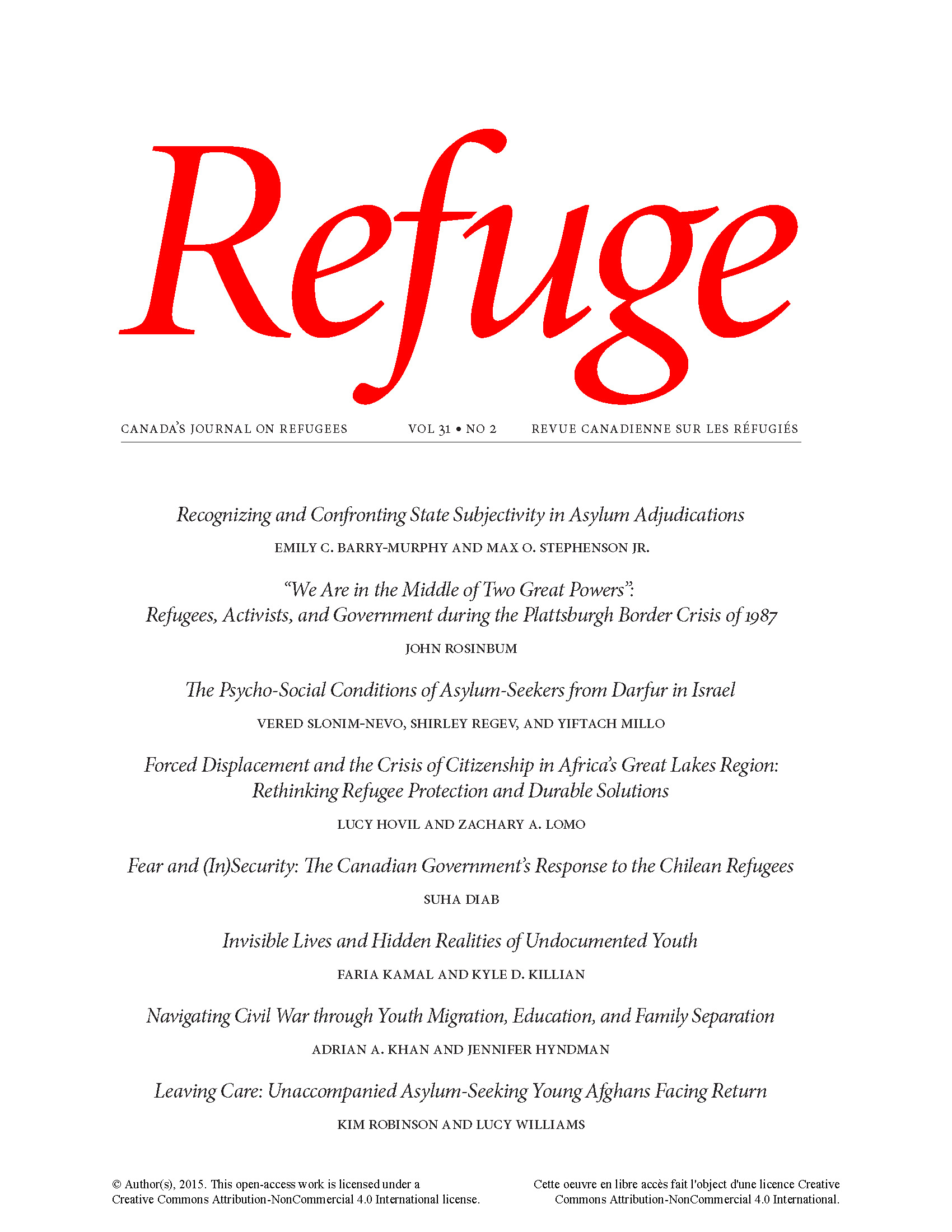Recognizing and Confronting State Subjectivity in Asylum Adjudications
DOI:
https://doi.org/10.25071/1920-7336.40305Keywords:
United States, asylum officers, asylum adjudication, asylum law, subjectivity, statism, imaginationAbstract
United States law charges America’s asylum officers with providing humanitarian protection for refugees while simultaneously securing the nation from external threats. This mandate requires that asylum officers balance potentially conflicting claims as they seek to ensure just treatment of claimants. This article explores how officers charged with that responsibility can develop a regime-centred subjectivity that often conditions them to view applicants with fraud and security concerns foremost in mind. This analysis also examines the potential efficacy of practical strategies linked to aesthetic, cognitive, affective, and moral imagination that may allow officials to become more aware of their statecentred subjectivity and how it influences their perceptions of threats to national security and to fraud. This analysis encourages adjudication officers to strive for a more nuanced understanding of what constitutes fraud and national security concerns and what are instead presuppositions created by the United States population-protection agenda.
Metrics
Downloads
Published
How to Cite
Issue
Section
License
Copyright (c) 2015 Emily C. Barry-Murphy, Max Stephenson Jr.

This work is licensed under a Creative Commons Attribution-NonCommercial 4.0 International License.
Refuge authors retain the copyright over their work, and license it to the general public under the Creative Commons Attribution-Non Commercial License International (CC BY-NC 4.0). This license allows for non-commercial use, reproduction and adaption of the material in any medium or format, with proper attribution. For general information on Creative Commons licences, visit the Creative Commons site. For the CC BY-NC 4.0 license, review the human readable summary.







